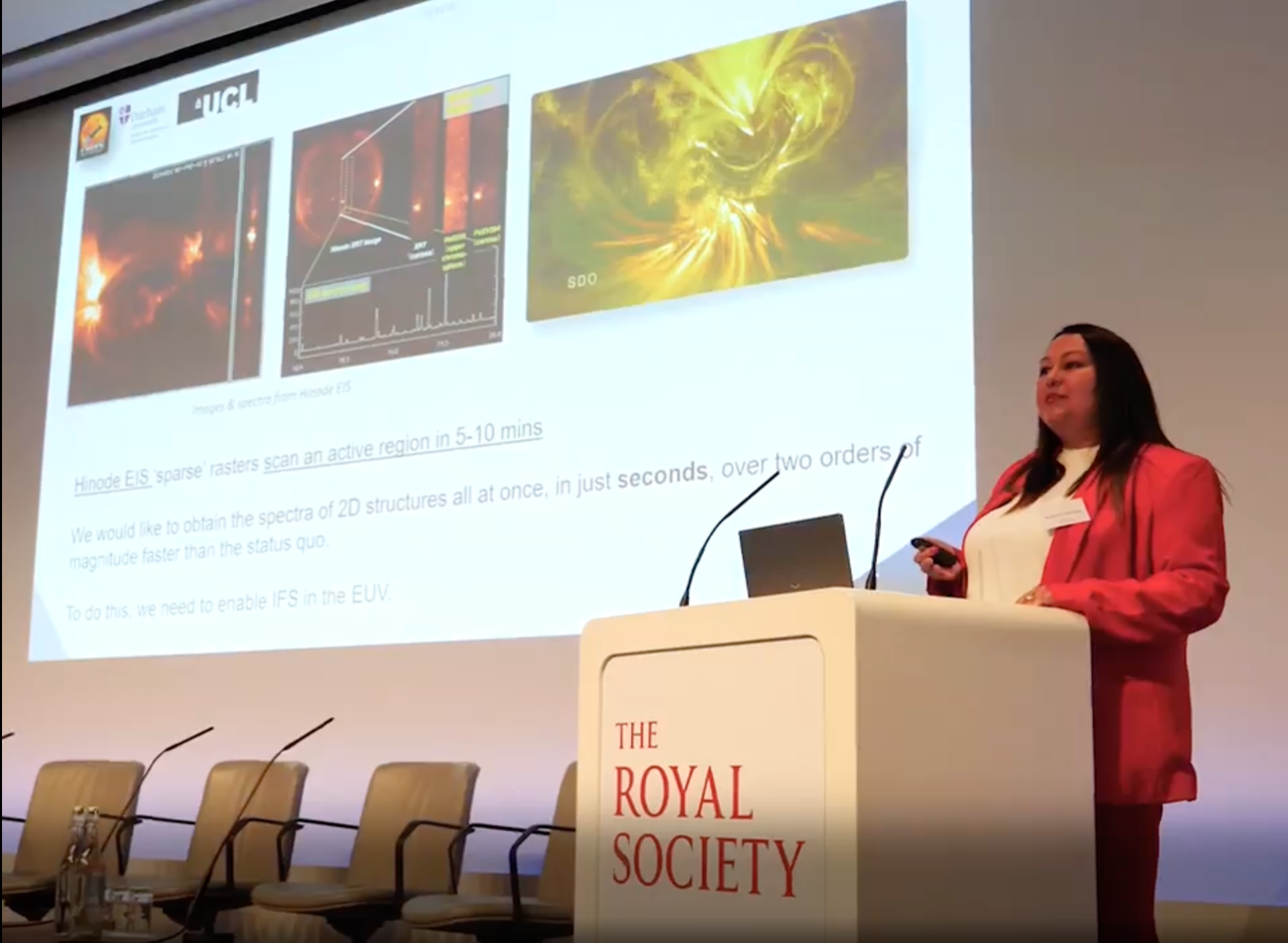CfAI participation at the UKSA NSIP Technology Showcase
On the 20th of June, the UK Space Agency celebrated the National Space Innovation Programme (NSIP) Technology Showcase at the Royal Society, in London. The event included members of the UK Space Agency, project leads from the different funded categories (Kickstarter, Major Projects and the Enabling Technology Programme), industry in the space sector, academic and government stakeholders.
From CfAI, Ariadna Calcines Rosario, was invited to present LUCES (Looking Up image slicers optimum Capabilities in the EUV for Space), a project developed by a consortium between Durham University and UCL to investigate the optimum capabilities of metallic slicers for the next generation of solar space missions. LUCES achieved unprecedented results, reducing the minimum slicer width from 420 μm to 15 μm, the thinnest slicer mirrors ever manufactured. Different materials were researched in order to minimise the surface roughness, typically at 4 nm RMS for metal, now reduced to 2.2 nm RMS. The design of a multi-layer dielectric coating optimised at 18.0 ±0.5 nm wavelength was developed within this project and applied to slicers for the first time.
The main goal is to space qualify the image slicer technology in the Extreme Ultra-Violet (EUV) to enable EUV Integral Field Spectroscopy. The developments of LUCES have been included in the first EUV integral field spectrograph (SISA: Spectral Imager of the Solar Atmosphere) which has been proposed as part of the payload of SPARK (Solar Particle Acceleration, Radiation and Kinetics) a UK-led space mission proposal submitted to the recent ESA’s M-class mission opportunity.



/prod01/prodbucket01/media/durham-university/departments-/physics/cfai/CfAI-Webpage-Banner-smaller.jpg)